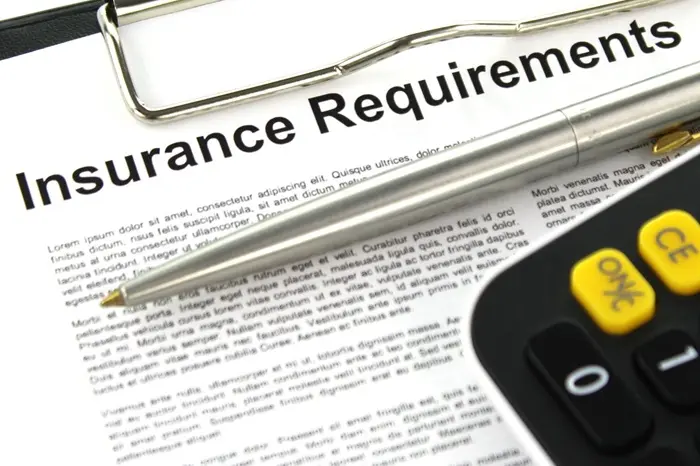Forming a Limited Liability Company (LLC) comes with a lot of responsibilities. One of the important aspects of running an LLC is purchasing insurance to protect your business, employees, and assets. But how much does LLC insurance cost? What factors affect the price? This article provides a comprehensive guide to LLC insurance, covering the types of coverage you may need, factors that affect the cost, and tips on how to get the best coverage for your business.
What is LLC insurance?
LLC insurance is a set of policies designed to protect your business from a variety of risks. These risks can include property damage, lawsuits, employee injuries, and other liabilities that may arise during business operations. While LLCs provide personal liability protection for their owners, they do not protect you from all risks. This is where insurance comes in handy.
Types of Insurance Needed for an LLC
The type of insurance you need for your LLC will depend on the nature of your business, the number of employees, and the risks you face. Below are some common types of insurance an LLC may require:
General Liability Insurance
General liability insurance is the most basic form of business insurance. It covers legal costs and damages resulting from third-party claims of bodily injury or property damage. For example, if a customer slips and falls at your business premises, general liability insurance can help cover medical costs and legal fees.
Professional Liability Insurance
Professional liability insurance (also known as errors and omissions insurance) is particularly important for businesses that offer professional advice or services. If a client claims that your service or advice caused them financial harm, this insurance can help cover legal fees and damages.
Workers’ Compensation Insurance
If your LLC has employees, you are typically required by law to carry workers’ compensation insurance. This insurance covers medical expenses and lost wages for employees who are injured on the job. Even if your state does not mandate workers’ compensation insurance, it’s still a good idea to have it to protect both your employees and your business.
Property Insurance
Property insurance protects your business’s physical assets, such as buildings, equipment, and inventory. If a disaster like a fire or theft damages your property, property insurance can help you recover financially.
Commercial Auto Insurance
If your LLC owns vehicles for business purposes, you will need commercial auto insurance. This type of insurance covers accidents, damage, or theft of company vehicles. It’s distinct from personal auto insurance, which does not cover vehicles used for business purposes.
Business Interruption Insurance
Business interruption insurance is designed to help you recover lost income if your business is temporarily unable to operate due to a covered event, such as a fire or natural disaster. It can help you cover expenses such as rent, utilities, and payroll during a period of business disruption.
Factors Affecting Limited Liability Company (LLC) Insurance Costs
The cost of LLC insurance is affected by a variety of factors and can vary widely. Here are the main factors that affect premiums.
1. Type of Business
The nature of your business is one of the most important factors in determining insurance costs. High-risk industries, such as construction, healthcare, and transportation, typically have higher premiums. Conversely, low-risk businesses, such as consulting firms or software development companies, may have lower premiums.
2. Location of Business
The location of your business operations can affect insurance costs. For example, if your business is located in an area susceptible to natural disasters such as floods or earthquakes, you may need additional coverage, which can increase costs. Additionally, local laws and regulations can affect minimum coverage requirements, further affecting your premiums.
3. Business Size and Revenue
Business size, as measured by the number of employees and revenue, can affect insurance costs. Larger businesses with more employees are more likely to experience accidents or liability claims, which can result in higher premiums. Similarly, businesses with higher revenues may need more extensive coverage, which can also result in higher insurance costs.
4. Claims History
If your LLC has a history of claims, your premiums may be higher. Insurance companies assess risk based on past claims, and businesses with frequent claims may be considered high-risk businesses, resulting in higher premiums. Maintaining a good claims history can help reduce your insurance costs in the long run.
5. Coverage Limits and Deductibles
The coverage you choose will directly affect your premiums. Policies with higher coverage limits are generally more expensive, but provide better protection in the event of a major claim. On the other hand, if you choose a higher deductible, your premiums may be lower, but you will have to pay more out of pocket if you make a claim.
6. Industry-Specific Requirements
Some industries have specific insurance requirements. For example, contractors may need to purchase additional insurance for their employees, or a tech startup may need cybersecurity insurance. Depending on the type of business, you may be required to carry specific types of insurance, which will affect your overall insurance costs.
How Much Does Insurance for an LLC Cost?
The cost of insurance for an LLC can vary widely depending on the factors mentioned above. However, here are some average annual costs for common types of business insurance:
General Liability Insurance
The cost of general liability insurance for an LLC can range from $300 to $1,000 per year for small businesses with low risk. However, high-risk businesses may pay $2,000 or more annually for coverage.
Professional Liability Insurance
For professional services firms, professional liability insurance can cost anywhere from $500 to $2,000 per year. However, businesses with a higher risk of litigation may pay more.
Workers’ Compensation Insurance
Workers’ compensation insurance is often the most significant cost for businesses with employees. The price can range from $0.75 to $2.74 per $100 of payroll, depending on the industry and state requirements.
Property Insurance
The cost of property insurance depends on the value of the property and the type of coverage you choose. On average, small businesses pay around $500 to $2,000 annually for property insurance.
Commercial Auto Insurance
Commercial auto insurance typically costs between $1,200 and $2,400 per year, depending on the number of vehicles, their use, and the type of coverage you choose.
Business Interruption Insurance
The cost of business interruption insurance is usually an add-on to your other policies. On average, it can cost an additional $500 to $1,500 annually, depending on the amount of coverage you need.
How to Reduce Insurance Costs for Your Limited Liability Company (LLC)
While insurance is essential to protecting your business, it doesn’t have to break the bank. Here are some tips to help you reduce your LLC insurance costs:
1. Bundle Policies
Many insurance companies offer discounts for bundling multiple policies. For example, you can combine your general liability and property insurance into one, which can lower your total premium.
2. Increase Your Deductible
Increasing your deductible can lower your monthly premiums. However, keep in mind that this means you’ll have to pay more out-of-pocket in the event of a claim.
3. Improve Risk Management
Implementing risk management measures, such as safety procedures, employee training, and regular inspections, can reduce the likelihood of an accident or claim. Insurance companies may offer discounts to businesses that take proactive steps to reduce risk.
4. Shop Around
Don’t settle for the first insurance quote you receive. Take the time to shop around and compare prices from different insurance companies. You may find that there’s a company that offers the same coverage for a lower price.
5. Work with an Insurance Broker
An insurance broker can help you find the best coverage for your limited liability company (LLC) at the most competitive price. A broker can connect with multiple insurance companies and customize a coverage package to suit your business’s specific needs.
Conclusion
Insurance for your LLC is a critical investment that protects your business from a variety of risks. The cost of insurance depends on factors such as the type of business, location, size, and industry-specific risks. By understanding the different types of insurance and how much coverage you need, you can make an informed decision about how to protect your LLC.
While insurance can be expensive, there are ways to lower premiums, such as bundling policies, increasing deductibles, and improving risk management practices. By comparing quotes and working with an insurance broker, you can find the best coverage for your business without breaking the bank.
All in all, insuring your LLC is a small price to pay for the peace of mind and security it brings.



























